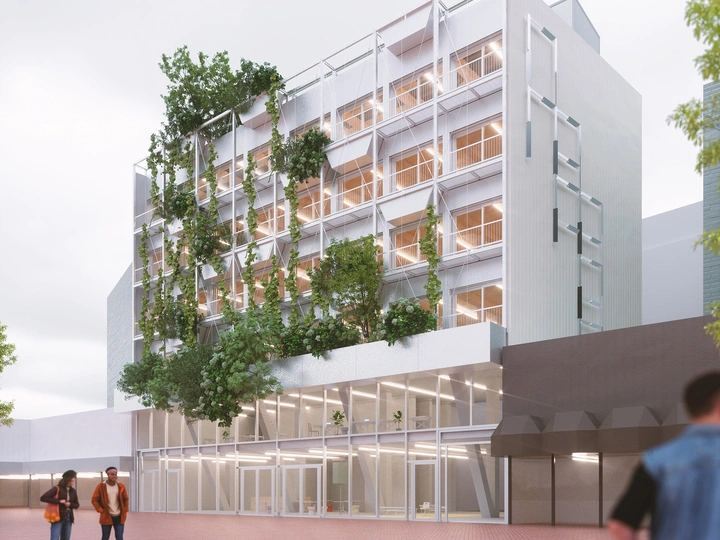Neues Amt Altona

Hans von Bülow
Cornelius Voss
Julian Meisen (*1988) co-founded Common Agency and is one of the four initiators of Neues Amt Altona. He currently serves as the chairman of its board.
Hans von Bülow (*1987) co-founded Common Agency and is one of the four initiators of Neues Amt Altona.
Cornelius Voss (*1985) co-founded Common Agency and is one of the four initiators of Neues Amt Altona. He currently serves as a board member of Neues Amt Altone e.G., overseeing the development and financing of the project.
Neues Amt Altona (NAA) is a development project located in Hamburg-Altona that entails the construction of a new cooperative coworking building, the protection of an existing, affordable creative hub and the creation of a public ground floor with space for gastronomy, events and neighborhood activities. Initiated by Common Agency and betahaus Hamburg, the project is dedicated to establishing a progressive and collaborative workspace within a socially and ecologically sustainable framework, which is co-owned by its users and rooted within its neighborhood.
In 2019 the concept conceived by Common Agency and betahaus Hamburg was chosen by the city to be realized. Today the cooperative is registered, counts almost 150 members and the completion of the new building is scheduled for 2024.
The project is located at the heart of Hamburg-Altona and aims to preserve Altona’s former tax office as an affordable hub for local creatives by securing all existing rents for at least twenty years. An extension of the existing building will create new coworking space.
The cooperative model of the project allows its future users – local entrepreneurs and creatives – to co-own their workspaces for below market prices. While the cooperative prevents the building’s commodification by profit-driven real estate speculation for the duration of its existence, it promotes inclusion by opening the ground floor to the public and making 25% of the total office space available to non-profit organizations at very low cost.
While the ground floor is realized in reinforced concrete, the timber construction of the upper floors drastically reduces the building’s CO₂ emissions. Additionally, NAA’s low-tech approach minimizes built-in technologies and reduces operational energy consumption. Instead, its extensive green façade creates a second layer in front of the building, reducing the heat input, creating outdoor space on each floor, and adding a green habitat to Altona’s city center.